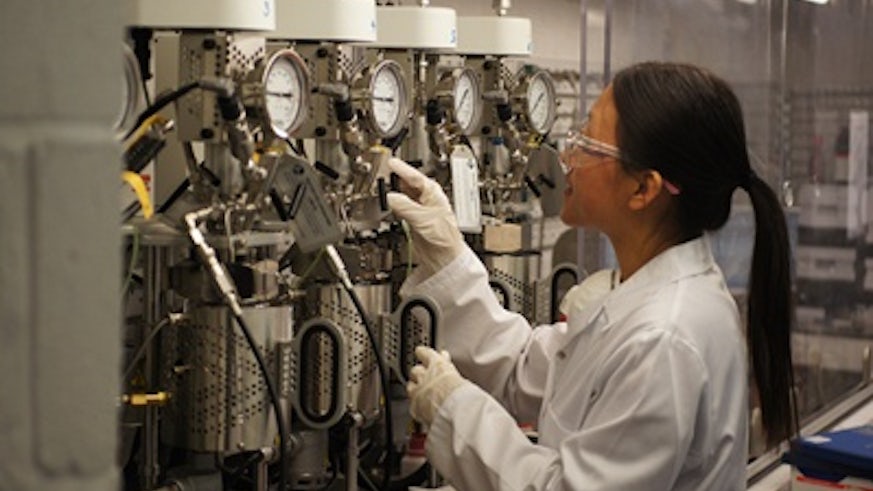New centres to train tomorrow's engineers and scientists
22 Tachwedd 2013

Cardiff University is set to benefit from a £350M fund to train postgraduate students in engineering and physical sciences, announced by Universities and Science Minister, David Willetts.
Cardiff has secured a share of the UK's largest investment in postgraduate training in engineering and physical sciences. In total the Engineering and Physical Sciences Research Council (EPSRC) will fund over seventy new Centres for Doctoral Training (CDTs), spread across 24 UK universities.
Science Minister David Willetts said: "Scientists and engineers are vital to our economy and society. It is their talent and imagination, as well as their knowledge and skills, that inspire innovation and drive growth across a range of sectors, from manufacturing to financial services.
"I am particularly pleased to see strong partnerships between universities, industry and business among the new centres announced. This type of collaboration is a key element of our industrial strategy and will continue to keep us at the forefront of the global science race."
Professor Karen Holford, Pro Vice-Chancellor, College of Physical Sciences & Engineering said: "This funding is targeted at areas vital to economic growth and is good news for Cardiff's thriving postgraduate community. Postgraduate study in the Physical Sciences and Engineering at Cardiff offers academic excellence in areas with high levels of economic and societal impact. Our Centres will involve research that connects to key industries and important technologies which will aid innovation and growth."
Cardiff will lead the Centre for Doctoral Training in Catalysis addressing some of society's biggest challenges through catalysis: clean energy generation, environmental clean-up of air and water and sustainable manufacture.
This interdisciplinary programme led by Cardiff, with the universities of Bath and Bristol, will offer postgraduate training in Catalysis and Reaction Engineering.
Professor Graham Hutchings, Director of the Centre for Doctoral Training in Catalysis, Cardiff University said: "This interdisciplinary programme will allow postgraduates to develop an advanced knowledge of traditional and emerging catalysis disciplines, an understanding of industry and global contexts plus research and professional skills. The resulting graduates will drive and grow the UK catalysis sector as well as support the needs of UK industry."
Cardiff is also a partner in two further Centres for Doctoral Training (CDTs). The Water Informatics: Science and Engineering (WISE) CDT, led by Exeter and joined by GW4 partners Cardiff, Bristol and Bath. The Centre will develop scientists and engineers to manage the water cycle effectively. It will provide a postgraduate programme that fosters new levels of innovation and collaboration to train engineers and scientists at the boundary of water informatics, science and engineering
Cardiff also partners in the Diamond Science and Technology CDT – led by Warwick University and partners. Diamond enabled innovative technologies are emerging with the potential for major advances in basic science and end-application performance. The new Centre will bring together 40 leading researchers from the eight partner universities with industrial input embedded throughout.
Paul Golby, EPSRC's Chair, said: "Centres for Doctoral Training have already proved to be a great success and the model is popular with students, business and industry. These new centres will give the country the highly trained scientists and engineers it needs and they will be equipped with skills to move on in their careers. The standard of applications for Centres was very high and more could have been funded if we had the capacity."
The news follows a major boost to postgraduate training in earth and environmental scientistsawarded to the GW4+ Doctoral Training Partnershipby the Natural Environment Research Council (NERC). And, significant postgraduate funding success in the arts and humanities by the South, West and Wales Consortium, in which Cardiff (joined with seven other universities) was been awarded £14.2 million funding from the Arts and Humanities Research Council (AHRC)